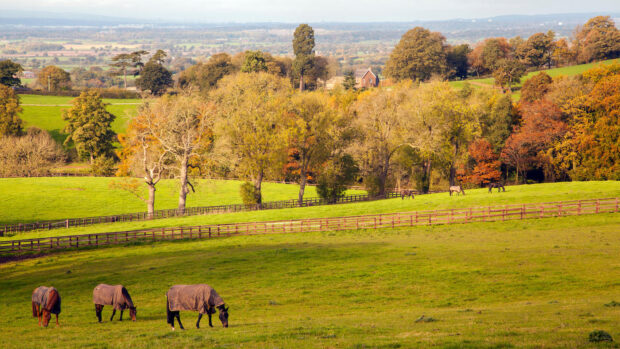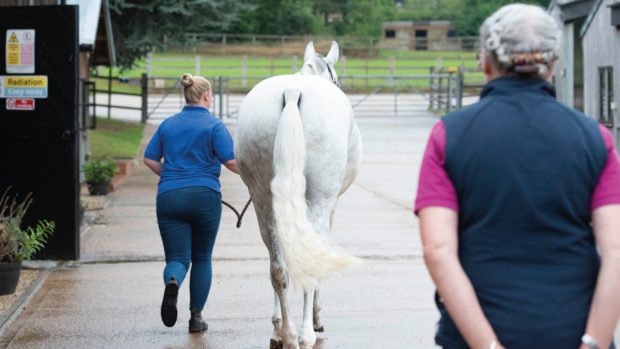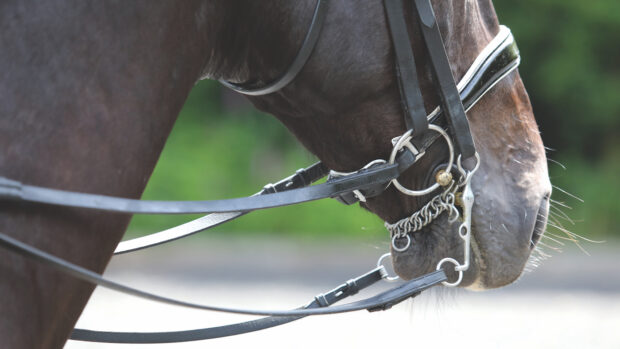Links have been identified between horses’ body condition score and restriction of their airways in a new study that could provide new clues towards equine obesity.
In a study, presented at the British Equine Veterinary Association (BEVA) Congress (13-16 September), authors from the University of Liverpool investigated the effect of horses’ body condition score on their tongue size, soft palate angle, and hyoid [the bones between the tongue and larynx] depth, as they aimed to understand why some overweight horses make a “train-like sound” during exercise.
The work, carried out by third-year student Hannah Shanks-Boon, involved taking various measurements from the CT scans of 44 horses’ heads and comparing these with their body condition scores. It was found that fat can be seen in the tongue and around the pharynx and larynx areas of horses. Although the size of the tongue did not directly correlate with body condition score, the angle of the soft palate and the depth of hyoid bone could be correlated to body condition score.
Lead author and supervisor Alison Talbot told H&H the study arose following a discussion with a showing society around obesity. The question asked was why obese horses make a noise during exercise. Ms Talbot said there have been studies looking at the impact of body weight on human sleep apnoea, snoring, and obstructive airway syndrome in dogs, but similar research has not been carried out on equines.
“It’s really interesting that the work made a correlation between those upper airway structures and body score,” she said. “It’s an exciting first step; it doesn’t prove anything from a disease point of view, but it shows that when looking at obesity, body condition score seems to affect the angle and position of several of the important structures of the upper airway. Potentially horses who have too much fat – or too little – could be experiencing a change in the angles of the upper airways which is more significant than we realised, so it opens all these questions.
“In humans the size of the tongue and the position of the basihyoid bone can be affected by body condition score. I think in horses it’s an area that needs considerable further investigation. The next questions are, does weight loss make a difference to those upper angles of the airway and does fat percentage in the tongue, larynx and pharynx influence clinically relevant upper airway obstructive diseases?”
BEVA president elect Bruce Bladon told H&H it was a “fascinating” study.
“In essence, horses seem to lay down fat in the base of their tongue, thus more overweight or obese horses have a steeper angle of their soft palate, as it rests on the enlarged base of the tongue,” he said.
“This study has potential welfare significance as this may result in restriction of the airway. Similar findings have been reported in humans, thus the link with snoring and sleep apnoea with obesity.”
You might also be interested in:

We must all unite to fight the battle against equine obesity

Horses’ lives at risk as owners can’t see the excess weight

Subscribe to Horse & Hound magazine today – and enjoy unlimited website access all year round
Horse & Hound magazine, out every Thursday, is packed with all the latest news and reports, as well as interviews, specials, nostalgia, vet and training advice. Find how you can enjoy the magazine delivered to your door every week, plus options to upgrade your subscription to access our online service that brings you breaking news and reports as well as other benefits.






